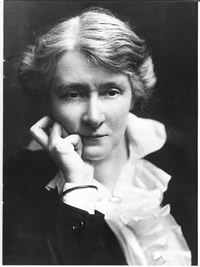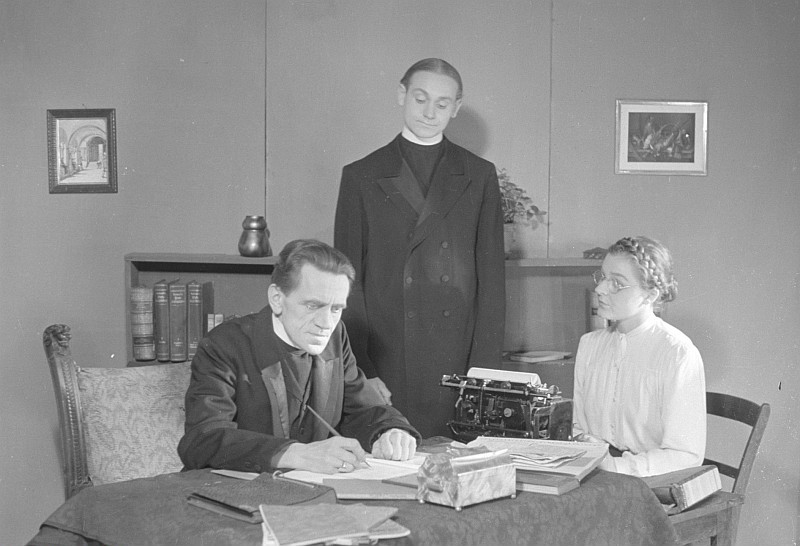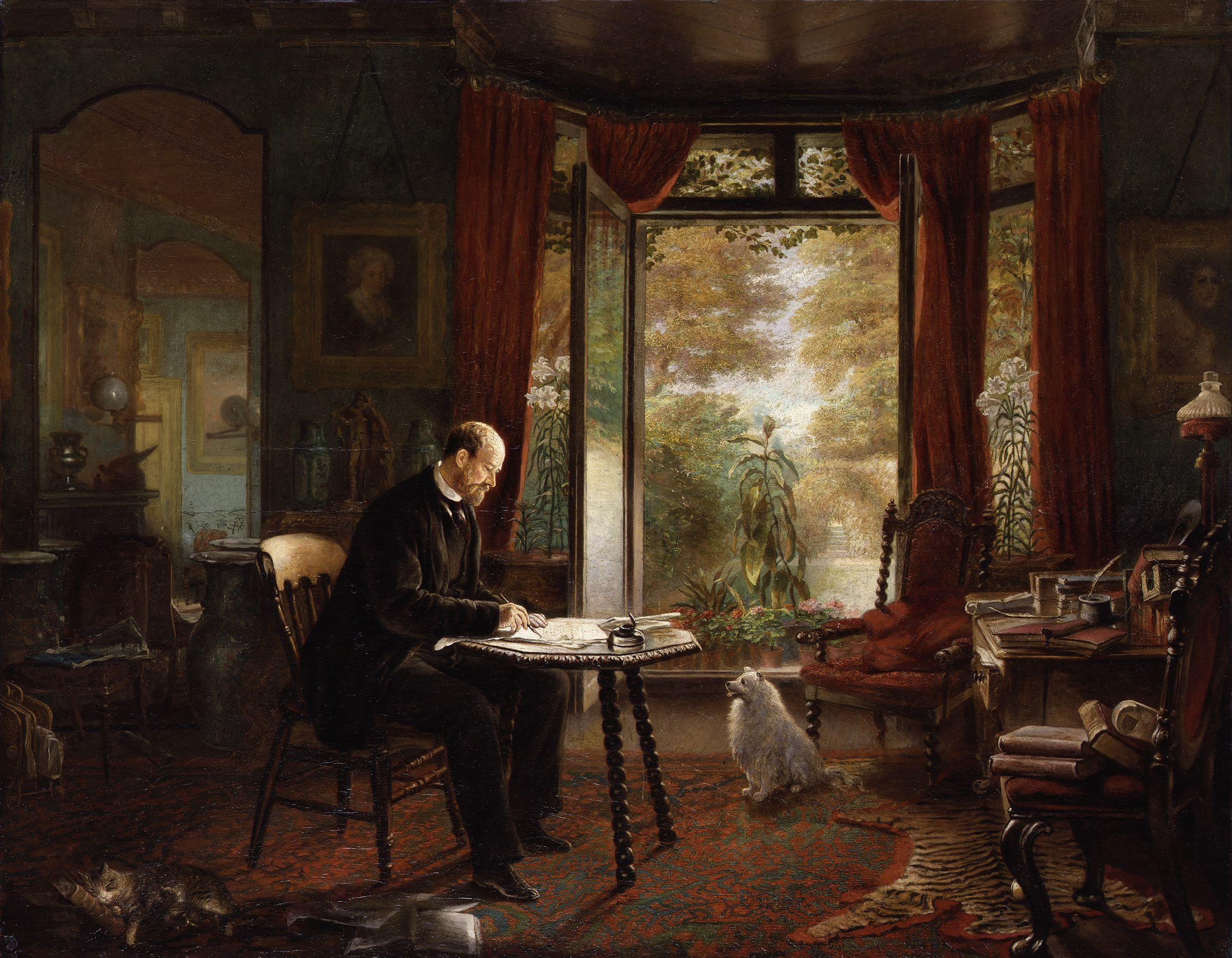|
Edith Craig
Edith Ailsa Geraldine Craig ( Edith Godwin; 9 December 1869 – 27 March 1947), known as Edy Craig, was a prolific theatre director, producer, costume designer and early pioneer of the women's suffrage movement in England. She was the daughter of actress Ellen Terry and the progressive English architect-designer Edward William Godwin, and the sister of theatre practitioner Edward Gordon Craig. As a lesbian, an active campaigner for women's suffrage, and a woman working as a theatre director and producer, Edith Craig has been recovered by feminist scholars as well as theatre historians. Craig lived in a ménage à trois with the dramatist Christabel Marshall and the artist Clare 'Tony' Atwood from 1916 until her death.Holroyd (2008)Rubin, Martin"''A Strange Eventful History: The Dramatic Lives of Ellen Terry, Henry Irving, and Their Remarkable Families'' by Michael Holroyd" ''Los Angeles Times'', 23 March 2009, accessed 18 October 2015.Rudd, Jill & Val Gough (eds''Charlotte P ... [...More Info...] [...Related Items...] OR: [Wikipedia] [Google] [Baidu] |
Royal Academy Of Music
The Royal Academy of Music (RAM) in London, England, is the oldest conservatoire in the UK, founded in 1822 by John Fane and Nicolas-Charles Bochsa. It received its royal charter in 1830 from King George IV with the support of the first Duke of Wellington. Famous academy alumni include Sir Simon Rattle, Sir Harrison Birtwistle, Sir Elton John and Annie Lennox. The academy provides undergraduate and postgraduate training across instrumental performance, composition, jazz, musical theatre and opera, and recruits musicians from around the world, with a student community representing more than 50 nationalities. It is committed to lifelong learning, from Junior Academy, which trains musicians up to the age of 18, through Open Academy community music projects, to performances and educational events for all ages. The academy's museum houses one of the world's most significant collections of musical instruments and artefacts, including stringed instruments by Stradivari, Guarneri, an ... [...More Info...] [...Related Items...] OR: [Wikipedia] [Google] [Baidu] |
Mrs Brown-Potter
Mary Cora Urquhart or Cora Brown–Potter (May 15, 1857 – February 12, 1936) was an American actress who found success in London. Formerly a member of ''The Four Hundred (Gilded Age), The Four Hundred'' in New York'','' she was one of the first American society women to become a stage actress. Early life Urquhart was born and raised in New Orleans, Louisiana. She was the first of four children of Augusta (née Slocomb) and Col. David Urquhart. Her father was a merchant and her mother the daughter of a hardware merchant. Because her family was affluent, she was privately educated. When she was eighteen years old, Urquhart married coffee broker James Brown–Potter on 7 December 1877. Potter–Brown was employed by Brown Bros. & Co. and was the son of Howard Potter. They had a daughter, Anne "Fifi" Urquhart Potter, in 1879. Urquhart was in demand at New York society parties and dinners for her beauty and skills at recitation, soon rising to inclusion in ''The Four Hundred (Gilde ... [...More Info...] [...Related Items...] OR: [Wikipedia] [Google] [Baidu] |
Henrik Ibsen
Henrik Johan Ibsen (; ; 20 March 1828 – 23 May 1906) was a Norwegian playwright and theatre director. As one of the founders of modernism in theatre, Ibsen is often referred to as "the father of realism" and one of the most influential playwrights of his time. His major works include ''Brand'', '' Peer Gynt'', '' An Enemy of the People'', ''Emperor and Galilean'', ''A Doll's House'', ''Hedda Gabler'', '' Ghosts'', ''The Wild Duck'', ''When We Dead Awaken'', ''Rosmersholm'', and ''The Master Builder''. Ibsen is the most frequently performed dramatist in the world after Shakespeare, and ''A Doll's House'' was the world's most performed play in 2006. Ibsen's early poetic and cinematic play ''Peer Gynt'' has strong surreal elements. After ''Peer Gynt'' Ibsen abandoned verse and wrote in realistic prose. Several of his later dramas were considered scandalous to many of his era, when European theatre was expected to model strict morals of family life and propriety. Ibsen's later wo ... [...More Info...] [...Related Items...] OR: [Wikipedia] [Google] [Baidu] |
Candida (play)
''Candida'', a comedy by playwright George Bernard Shaw, was written in 1894 and first published in 1898, as part of his '' Plays Pleasant''. The central characters are clergyman James Morell, his wife Candida and a youthful poet, Eugene Marchbanks, who tries to win Candida's affections. The play questions Victorian notions of love and marriage, asking what a woman really desires from her husband. The cleric is a Christian Socialist, allowing Shaw—himself a Fabian Socialist—to weave political issues, current at the time, into the story. Shaw attempted but failed to have a London production of the play put on in the 1890s, but there were two small provincial productions. However, in late 1903 actor Arnold Daly had such a great success with the play that Shaw would write by 1904 that New York was seeing "an outbreak of Candidamania". The Royal Court Theatre in London performed the play in six matinees in 1904. The same theatre staged several other of Shaw's plays from 1904 t ... [...More Info...] [...Related Items...] OR: [Wikipedia] [Google] [Baidu] |
Eleonora Duse
Eleonora Giulia Amalia Duse ( , ; 3 October 185821 April 1924), often known simply as Duse, was an Italian actress, rated by many as the greatest of her time. She performed in many countries, notably in the plays of Gabriele d'Annunzio and Henrik Ibsen. Duse achieved a unique power of conviction and verity on the stage through intense absorption in the character, "eliminating the self" as she put it, and letting the qualities emerge from within, not imposed through artifice. Life and career Duse was born in Vigevano, Lombardy, in 1858 to Alessandro Vincenzo Duse (1820–1892) and Angelica Cappelletto (1833–1906). Both her father and her grandfather, Luigi, were actors from Chioggia, near Venice, and she joined the troupe at age four. Due to poverty, she initially worked continually, traveling from city to city with whichever troupe her family was currently engaged. She came to fame in Italian versions of roles made famous by Sarah Bernhardt, such as ''La Dame aux camélias'' ... [...More Info...] [...Related Items...] OR: [Wikipedia] [Google] [Baidu] |
George Bernard Shaw
George Bernard Shaw (26 July 1856 – 2 November 1950), known at his insistence simply as Bernard Shaw, was an Irish playwright, critic, polemicist and political activist. His influence on Western theatre, culture and politics extended from the 1880s to his death and beyond. He wrote more than sixty plays, including major works such as ''Man and Superman'' (1902), ''Pygmalion'' (1913) and '' Saint Joan'' (1923). With a range incorporating both contemporary satire and historical allegory, Shaw became the leading dramatist of his generation, and in 1925 was awarded the Nobel Prize in Literature. Born in Dublin, Shaw moved to London in 1876, where he struggled to establish himself as a writer and novelist, and embarked on a rigorous process of self-education. By the mid-1880s he had become a respected theatre and music critic. Following a political awakening, he joined the gradualist Fabian Society and became its most prominent pamphleteer. Shaw had been writing plays for years ... [...More Info...] [...Related Items...] OR: [Wikipedia] [Google] [Baidu] |
Charles Reade
Charles Reade (8 June 1814 – 11 April 1884) was a British novelist and dramatist, best known for '' The Cloister and the Hearth''. Life Charles Reade was born at Ipsden, Oxfordshire, to John Reade and Anne Marie Scott-Waring, and had at least four brothers. He studied at Magdalen College, Oxford, taking his B.A. in 1835, and became a fellow of his college. He was subsequently dean of arts and vice-president, taking his degree of D.C.L. in 1847. His name was entered at Lincoln's Inn in 1836; he was elected Vinerian Fellow in 1842, and was called to the bar in 1843.Edwards, P.D. "Charles Reade." ''Oxford Dictionary of National Biography.'' He kept his fellowship at Magdalen all his life but, after taking his degree, he spent most of his time in London. William Winwood Reade, the influential historian, was his nephew. Writings Reade began his literary career as a dramatist, and he chose to have "dramatist" stand first in the list of his occupations on his tombstone. As an auth ... [...More Info...] [...Related Items...] OR: [Wikipedia] [Google] [Baidu] |
Arthur Wing Pinero
Sir Arthur Wing Pinero (24 May 185523 November 1934) was an English playwright and, early in his career, actor. Pinero was drawn to the theatre from an early age, and became a professional actor at the age of 19. He gained experience as a supporting actor in British provincial theatres, and from 1876 to 1881 was a member of Henry Irving's company, based at the Lyceum Theatre, London, Lyceum Theatre, London. Pinero wrote his first play in 1877. Seven years later, having written 15 more, three of them highly successful, he abandoned acting and became a full-time playwright. He first became known for a series of farces, of which ''The Magistrate (play), The Magistrate'' (1885) was the longest-running. During the 1890s he turned to serious subjects. ''The Second Mrs Tanqueray'' (1893), dealing with a woman with a scandalous past, was regarded as shocking, but ran well and made a large profit. His other successes included ''Trelawny of the 'Wells', Trelawny of the "Wells"'' (1898), ... [...More Info...] [...Related Items...] OR: [Wikipedia] [Google] [Baidu] |
The Bells (play)
''The Bells'' is a play in three acts by Leopold David Lewis which was one of the greatest successes of the British actor Henry Irving. The play opened on 25 November 1871 at the Lyceum Theatre in London and initially ran for 151 performances. Irving was to stage the play repeatedly throughout his career, playing the role of Mathias for the last time the night before his death in 1905. Background ''The Bells'' is a translation by Leopold Lewis of the 1867 play ''Le Juif Polonais'' (''The Polish Jew'') by Erckmann-Chatrian. ''Le Juif Polonais'' was also adapted into an opera of the same name in three acts by Camille Erlanger, composed to a libretto by Henri Caïn. In 1871, Irving began his association with the Lyceum Theatre with an engagement under the management of Hezekiah Linthicum Bateman. The fortunes of the house were at a low ebb when the tide was turned by Irving's sudden success as Mathias in ''The Bells,'' a property which Irving had found for himself. Bate ... [...More Info...] [...Related Items...] OR: [Wikipedia] [Google] [Baidu] |
Lyceum Theatre, London
The Lyceum Theatre ( ) is a West End theatre located in the City of Westminster, on Wellington Street, just off the Strand in central London. It has a seating capacity of 2,100. The origins of the theatre date to 1765. Managed by Samuel Arnold, from 1794 to 1809 the building hosted a variety of entertainments including a circus produced by Philip Astley, a chapel, and the first London exhibition of waxworks by Madame Tussauds. From 1816 to 1830, it served as The English Opera House. After a fire, the house was rebuilt and reopened on 14 July 1834 to a design by Samuel Beazley. The building is unique in that it has a balcony overhanging the dress circle. It was built by the partnership of Peto & Grissell. The theatre then played opera, adaptations of Charles Dickens novels and James Planché's "fairy extravaganzas", among other works. From 1871 to 1902, Henry Irving appeared at the theatre, especially in Shakespeare productions, usually starring opposite Ellen Terry. In 1904 t ... [...More Info...] [...Related Items...] OR: [Wikipedia] [Google] [Baidu] |
Henry Irving
Sir Henry Irving (6 February 1838 – 13 October 1905), christened John Henry Brodribb, sometimes known as J. H. Irving, was an English stage actor in the Victorian era, known as an actor-manager because he took complete responsibility (supervision of sets, lighting, direction, casting, as well as playing the leading roles) for season after season at the West End’s Lyceum Theatre, establishing himself and his company as representative of English classical theatre. In 1895 he became the first actor to be awarded a knighthood, indicating full acceptance into the higher circles of British society. Life and career Irving was born to a working-class family in Keinton Mandeville in the county of Somerset. W.H. Davies, the celebrated poet, was a cousin. Irving spent his childhood living with his aunt, Mrs Penberthy, at Halsetown in Cornwall. He competed in a recitation contest at a local Methodist chapel where he was beaten by William Curnow, later the editor of ''The Sydn ... [...More Info...] [...Related Items...] OR: [Wikipedia] [Google] [Baidu] |










